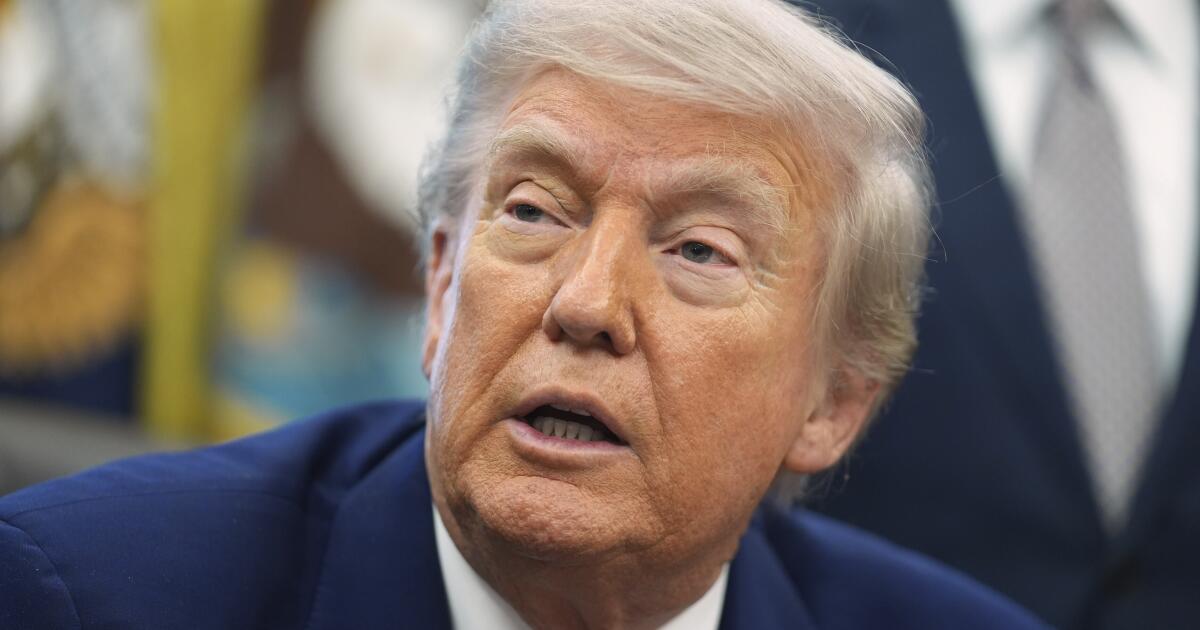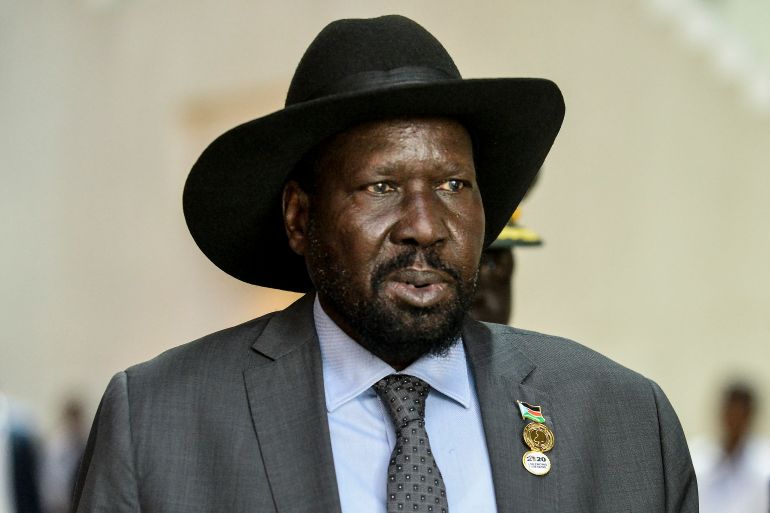Trump signs executive orders to boost nuclear power, speed up approvals
WASHINGTON — President Trump signed executive orders Friday intended to quadruple domestic production of nuclear power within the next 25 years, a goal experts say the United States is highly unlikely to reach.
To speed up the development of nuclear power, the orders grant the U.S. Energy secretary authority to approve advanced reactor designs and projects, taking authority away from the independent safety agency that has regulated the U.S. nuclear industry for five decades.
The order comes as demand for electricity surges amid a boom in energy-hungry data centers and artificial intelligence. Tech companies, venture capitalists, states and others are competing for electricity and straining the nation’s electric grid.
“We’ve got enough electricity to win the AI arms race with China,” Interior Secretary Doug Burgum said. “What we do in the next five years related to electricity is going to determine the next 50” years in the industry.
Still, it’s unlikely the U.S. could quadruple its nuclear production in the time frame the White House specified. The United States lacks any next-generation reactors operating commercially and only two large reactors have been built from scratch in nearly 50 years. Those two reactors, at a nuclear plant in Georgia, were completed years late and at least $17 billion over budget.
Trump is enthusiastic
At the Oval Office signing, Trump, surrounded by industry executives, called nuclear a “hot industry,” adding, “It’s time for nuclear, and we’re going to do it very big.”
Burgum and other speakers said the industry has stagnated and has been choked by overregulation.
“Mark this day on your calendar. This is going to turn the clock back on over 50 years of overregulation of an industry,’’ said Burgum, who chairs Trump’s newly formed Energy Dominance Council.
The orders would reorganize the independent Nuclear Regulatory Commission to ensure quicker reviews of nuclear projects, including an 18-month deadline for the NRC to act on industry applications. The measures also create a pilot program intended to place three new experimental reactors online by July 4, 2026 — 13 months from now — and invoke the Defense Production Act to allow emergency measures to ensure the U.S. has the reactor fuel needed for a modernized nuclear energy sector.
The NRC is assessing the executive orders and will comply with White House directives, spokesperson Scott Burnell said Friday.
Jacob DeWitte, chief executive of the nuclear energy company Oklo, brought a golf ball to the Oval Office. He told Trump that’s the amount of uranium that can power someone’s needs for their entire life.
“It doesn’t get any better than that,” he said, holding up the ball.
“Very exciting indeed,” Trump said.
Trump has signed a spate of executive orders promoting oil, gas and coal that warm the planet when burned to produce electricity. Nuclear reactors generate electricity without emitting greenhouse gases. Trump said reactors are safe and clean but did not mention climate benefits. Safety advocates warn that nuclear technology still comes with significant risks that other low-carbon energy sources don’t, including the danger of accidents or targeted attacks, and the unresolved question of how to store tens of thousands of tons of hazardous nuclear waste.
The order to reorganize the NRC will include significant staff reductions but is not intended to fire NRC commissioners who lead the agency. David Wright, a former South Carolina elected official and utility commissioner, chairs the five-member panel. His term ends June 30, and it is unclear whether he will be reappointed.
Critics have trepidations
Critics say the White House moves could compromise safety and violate legal frameworks such as the Atomic Energy Act. Compromising the independence of the NRC or encouraging it to be circumvented entirely could weaken the agency and make regulation less effective, said Edwin Lyman, director of nuclear power safety at the Union of Concerned Scientists.
“Simply put, the U.S. nuclear industry will fail if safety is not made a priority,” he said.
Gregory Jaczko, who led the NRC under President Obama, said Trump’s executive orders look like someone asked an AI chatbot, “How do we make the nuclear industry worse in this country?”
He called the orders a “guillotine to the nation’s nuclear safety system” that will make the country less safe, the industry less reliable and the climate crisis more severe.
A number of countries are speeding up efforts to license and build a new generation of smaller nuclear reactors to meet a surging demand for electricity and supply it carbon-free. Last year, Congress passed legislation that President Biden signed to modernize the licensing of new reactor technologies so they can be built faster.
This month, the power company in Ontario, Canada, began building the first of four small nuclear reactors.
Valar Atomics is a nuclear reactor developer in California. Founder and CEO Isaiah Taylor said nuclear development and innovation in the United States has been slowed by too much red tape, while Russia and China are speeding ahead. He said he’s most excited about the mandate for the Energy Department to speed up the pace of innovation.
The NRC is currently reviewing applications from companies and a utility that want to build small nuclear reactors to begin providing power in the early 2030s. Currently, the NRC expects its reviews to take three years or less.
Tori Shivanandan, chief operating officer of Radiant Nuclear, a California-based startup, said the executive orders mark a “watershed moment” for nuclear power in the U.S., adding that Trump’s support for the advanced nuclear industry will help ensure its success.
Daly and McDermott write for the Associated Press.







